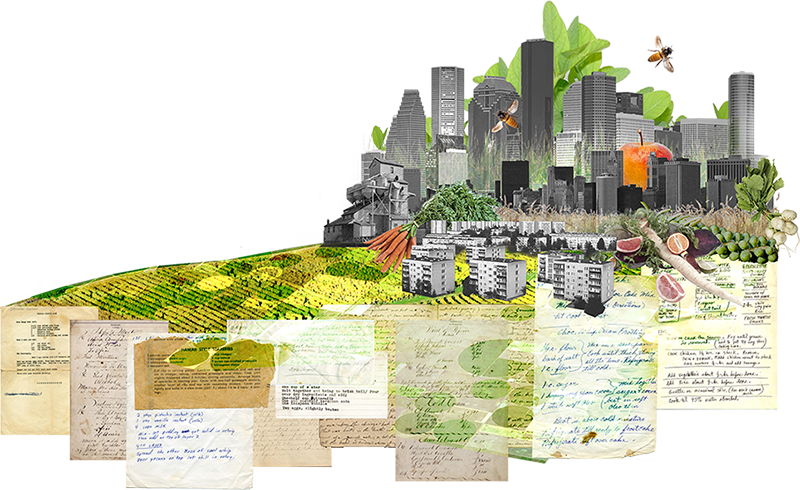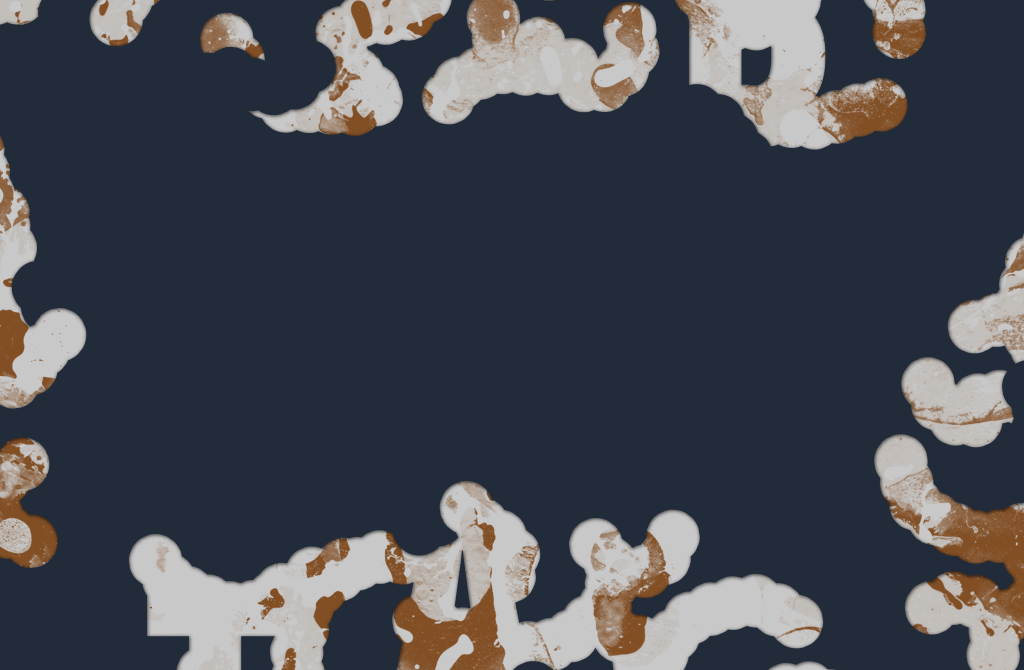Future Food Deal

COOKBOOKS & MANUALS
The global food system—from the overgrowth of chickens to the entirety of the agri-food industry—is the world’s second largest emitter of greenhouse gases. As the need for food continues to grow in response to increasing urbanization, the alienation between people and their provision sources also grows. We continue to produce and consume our edibles by reinforcing carbon dependency, often unaware of the links between the sourcing, production and distribution of food, and the ways in which we consume it. In many ways, we are estranged from the journey of the edible arriving to our table.
In this light, this OPEN CALL urges architects and designers to reimagine planetary food systems, along with architecture’s expressive capacity to metabolize, digest and generate resources. How can we redefine traditional practices upon which the global food systems have been operating for the last decades and urge new forms of localization and production? How can we explore alternative pathways between production and consumption? How might we foster circular processes and economies through design?
The spatial and existential connections between architecture and food surface in different scales: from the gut of our bodies to the ecology of territories and the technology of building systems. They bring together the farm, the city, injustice, and the stomach. With a focus on the urban and architectural implications of food systems (production, distribution, consumption, decomposition) and the urgency for productivity in cities, the FUTURE FOOD DEAL OPEN CALL aims to present alternative forms of urban farming, new local and interspecies ecologies for food production or zero food miles practices that reconnect communities with their food, among other topics.
We seek a diverse range of projects developed in the form of cookbooks and manuals that will constitute new guidelines of food-driven and food-oriented projects within design disciplines. Submitted proposals are invited to explore the principles of kinship, interspecies alliances, circularity, and localization and to ask what new rituals, practices and architectures can emerge from the networks of food production, consumption distribution and decay.
The FUTURE FOOD DEAL OPEN CALL is organized by the curatorial team of the upcoming Tallinn Architecture Biennale (TAB) “Edible, Or, The Architecture of Metabolism” opening in September 2022. TAB 2022 is curated by Lydia Kallipoliti and Areti Markopoulou in collaboration with assistant curator Sonia Sobrino Ralston.
The Deadline for Submissions is May 13, 2022.
COOKBOOK THEMES
Future Food Deal calls for submission of projects and ideas that address one or more of the following categories:
Farm and the City: Production | Urban Farming | Automation | Interspecies Ecologies| New breeding practices
Farm and the City deals with the cultivation and production of food. Our food is heavily reliant on extractive forms of labor and production, and are held in a fragile balance with environmental, social, and economic conditions. Projects dealing with food production might propose new spatial agglomerations at sites of cultivation, forms of sensing or automation that support more efficient production practices, new sites for production activities, or circular systems that work with non-human species.
From Urban Farm to Fork: Distribution | 0 food miles practices | new urban infrastructure | transparent transactions
From Urban Farm to Fork responds to the distribution of food across space. The logistics of how food arrives in cities, in homes, and in our bodies is the result of a massive infrastructural network of transportation and mobility. Projects in this area might propose alternative forms of distribution networks or reusing existing urban areas or infrastructure for food-related programming.
All you can eat: Consumption | Food passports | Accelerated Growth | Synthetic Food
All You Can Eat is concerned with all aspects of cooking and preparing food for consumption, as well as the act of eating itself. This theme might be addressed by projects that focus on collective eating and new possible spatial arrangements, different forms of synthetic food, or forms and interventions that make new food geographies possible through eating.
Eaten away: Decomposition | Food Waste | New nutrients | Upcycled Matter
Eaten away is focused on food waste and ways to imagine how this waste can be retooled to serve new productive functions. Projects in this category may range from small-scale anaerobic digesters or waste-to-energy systems, reusing food waste as new building materials, or retooling existing waste management spaces in novel ways. Work might use a variety of strategies involving specialized technology, or carefully chosen ecological tools such as fungi to serve alternative purposes.
Food Justice: Accessibility| Food Sovereignty | Supply & Demand | Culture
Food justice deals with questions of sovereignty, access, and equitability as they relate to food. Projects in this category might offer designed solutions to food insecurity, offer new adjacencies between labor and consumption that respond to situations of injustice, or envision new productive landscapes that respond to the inequitable distribution of productive or consumptive resources.
The OPEN CALL is interdisciplinary and open to individuals, collectives, institutions, or industrial partnerships whose proposals reimagine the relationships between food systems and the architecture of buildings and cities. There are no restrictions on eligibility. Work may range from practical proposals to speculative projects that imagine far-future contexts. Participants are encouraged to submit reformatted versions of their ongoing or completed projects and research work or propose entirely new work based on the themes of the OPEN CALL.
Format of Deliverables and How to Submit
The FUTURE FOOD DEAL will be showcased in the format of guidelines and open manuals in the 2022 Tallinn Architecture Biennale.
Each participant is asked to deliver a total of 6 A4 (210 x 297 mm) panels:
- 1 A4 should be an axonometric diagram of the proposal/manual
- 1 A4 should be a text of approximately 300 words in the form of an open manual/ “recipe” including instructions of how other users/agents could replicate or customize the solution in a local context
- 1 A4 should be a rendered image of the proposal in a specific context open to the participants
- 3 A4 pages may include complementary drawings, plans, sections, sketches or other similar material.
Files should be saved in the following format:
- Panels must be submitted in high resolution PDF format in CMYK color mode.
- Images uploaded separately as 300dpi JPEG images with a maximum size of 15MB.
Folders and files must be named using the following convention:
- Folder: TAB_2022_FutureFoodDeal_Cookbook_NamesofParticipants
- Boards: TAB_2022_FutureFoodDeal_Cookbook_NamesofParticipants_boards.pdf
- Images: TAB_2022_FutureFoodDeal_Cookbook_NamesofParticipants_image.jpeg
The form of submission is via digital upload. Entries shall be submitted in digital format as a .zip or .rar folder (max 2GB) through: futurefooddeal@tab.ee
